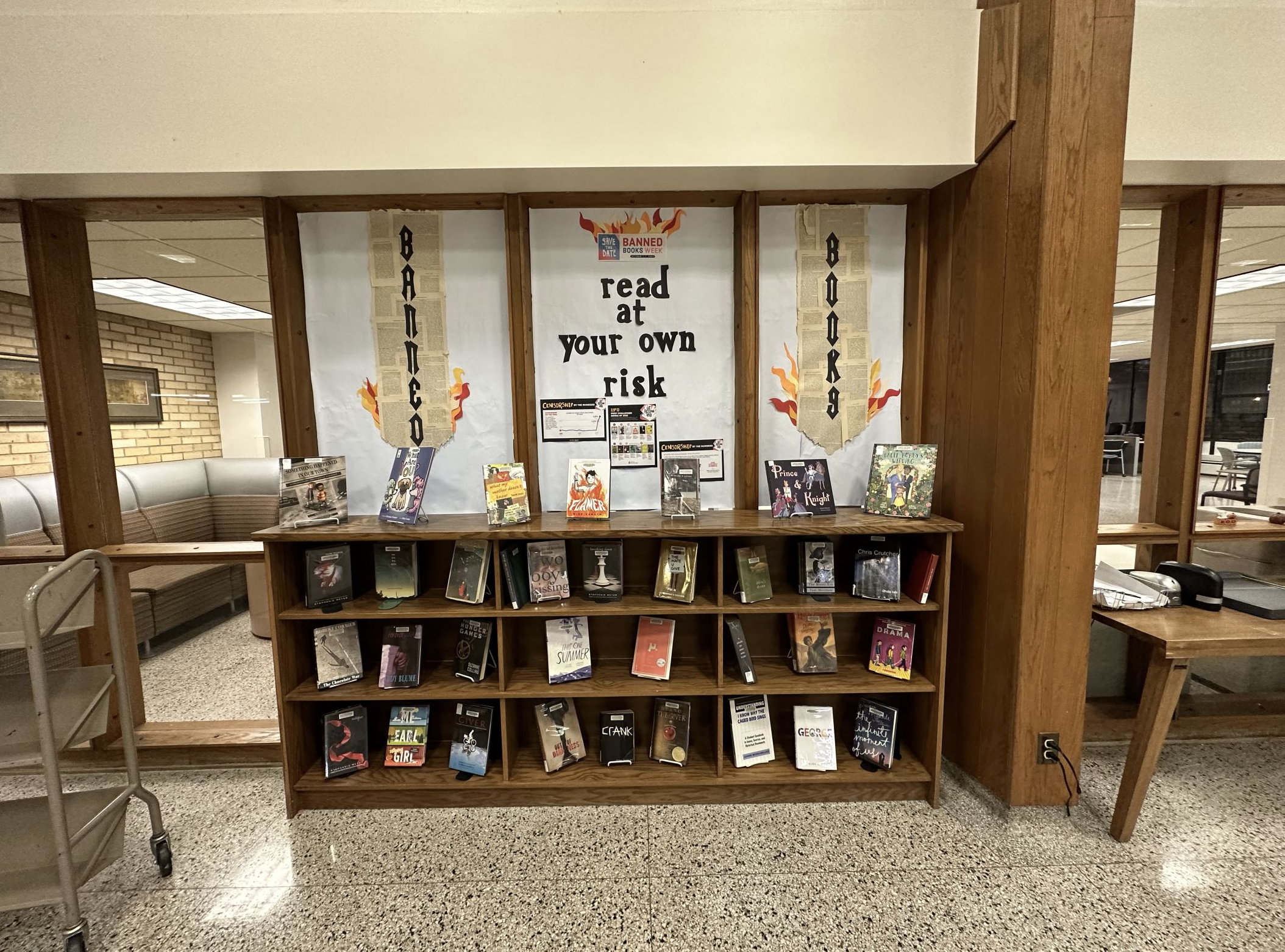FARGO – As the issue of banning and challenging books continues to polarize the country, the American Library Association believes National Banned Books Week to be more important than ever.
Each year libraries across the country recognize the first week in Oct. as National Banned Books Week. The ALA chooses a different theme for the event each year, this year’s theme is “Let Freedom Read”. Additionally, the ALA releases data and graphics to spread awareness about the issue.
In 2023, the North Dakota House and Senate advanced House Bill 1205 and Senate Bill 2360, attempting to restrict the types of materials allowed in libraries. The original draft of House Bill 1205 moved to prohibit libraries from maintaining books with explicit sexual material, including themes of gender and sexual identity.
“Looking at gender identity, what does that really mean?” Instruction and research librarian Molly Flaspohler said. “There’s a problem with being able to even enforce something like this. It could just depend on one person saying they don’t like a book. Is that enough of a challenge?”
The final version of House Bill 1205 prohibits explicit sexual materials and requires libraries to submit a compliance report. Other states across the country are pursuing similar actions, but the final effects of this bill remain to be seen.
“In the last year or two, the challenges have definitely skyrocketed,” Flaspohler said.
The number of attempts to ban or restrict library materials in the U.S. has jumped from 156 in 2020 to 1,269 in 2022, according to the American Library Association,

First-year students at Concordia are required to take a first-year seminar class. Each class focuses on a different topic relating to the central theme of engaged citizenship. Professor Amy Watkin, a professor of English and women and gender studies, is teaching a first-year seminar class entitled “Book Banning: What’s at stake.”
For Professor Watkin, the connection between the topic of book banning and the theme of engaged citizenship is undeniable.
“People often think about banned books as an issue for parents, teachers, or librarians. Those are the people who are concerned and if I’m not going to be any of those things, then I don’t have to worry about it,” Watkin said, “Well, you’re still paying taxes, right? Whether you have kids in those schools or not, what happens in those schools becomes your business because you pay taxes. Same with public libraries. We’re all financially invested in the issue”.
Professor Watkin also explained that people who may not be as knowledgeable about banned and challenged materials still encounter them.
“The vast majority of people come across books, texts, movies, materials, and other things that are banned and censored or challenged regularly so it really does affect all of us.”
Sarah Schroeder, a first-year student in Watkin’s class, echoed many of her sentiments.
“I think (banned books) relates to the topic of engaged citizenship because in order for us to be good citizens, we need to be informed,” Schroeder said, “If we don’t have access to materials that can allow us to learn more about people different from us and allow us to empathize, then it is going to be harder to be an engaged citizen and be that positive person in the world.”
The week of October 1-7 was named National Banned Books Week in 1982. Watkin’s class has been working on a number of projects for the occasion, such as displays in the Carl B. library and English department hallway, handing out books to students and doing a social media takeover for Fargo Public Library.
Watkin hopes that working on projects outside of the classroom will allow students to see what engaged citizenship really looks like.
“(The projects) achieve hopefully a level of independence and ownership for students, seeing some of what we’re learning at work,” Watkin said, “(thinking) I could make a difference for people if they see a display or Instagram post, or get a free book”.
The students have been planning for their projects and looking forward to sharing what they have learned. Schroeder, who is working on the library display project, hopes to provide information about what banning and challenging books really looks like.
“It’s important because we talk a lot about free speech, but we also should have free access to materials,” Schroeder said, “One person’s opinion should not determine what someone else should have access to.”

